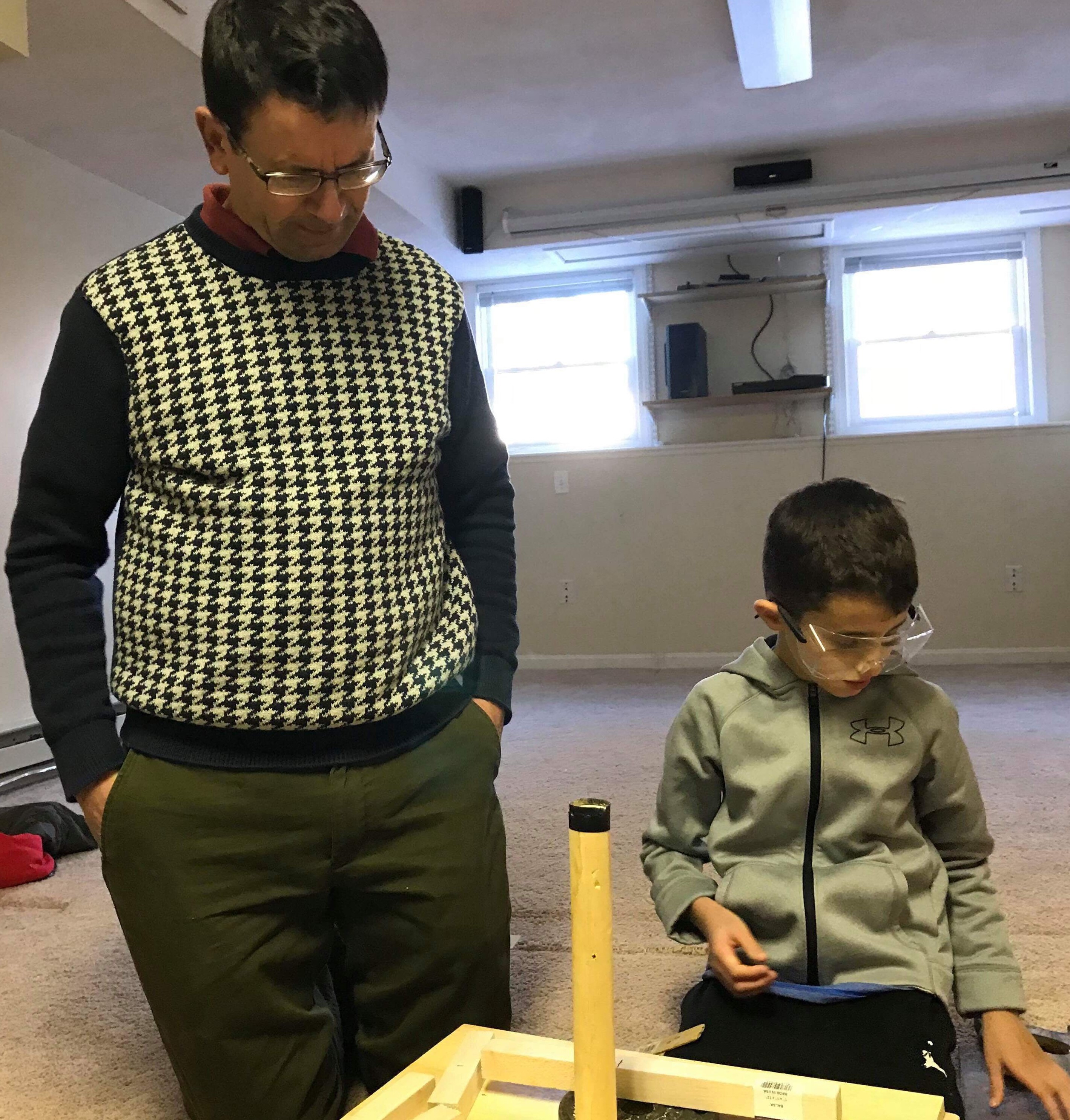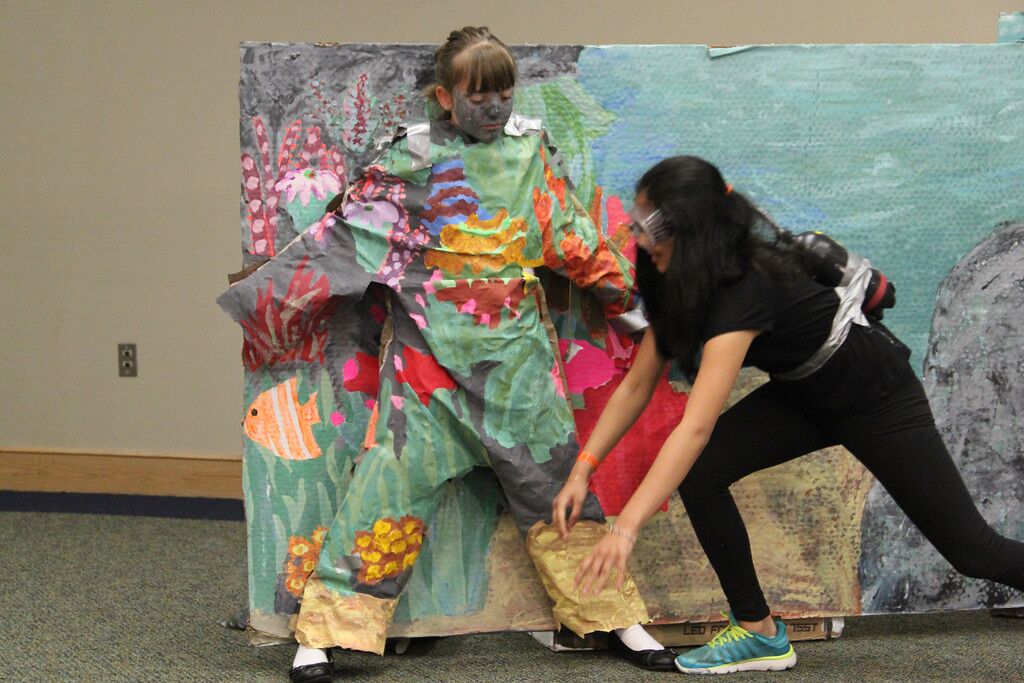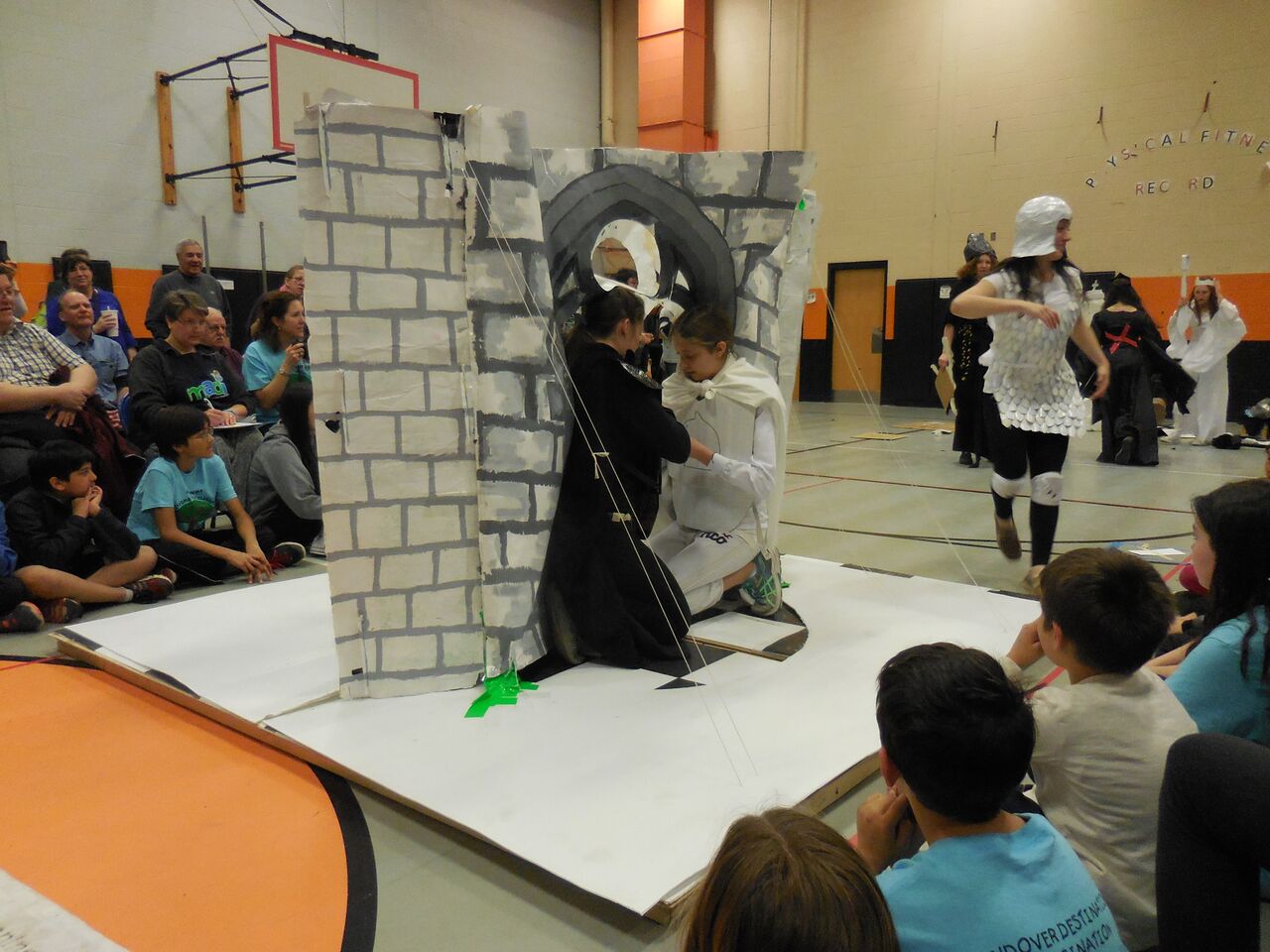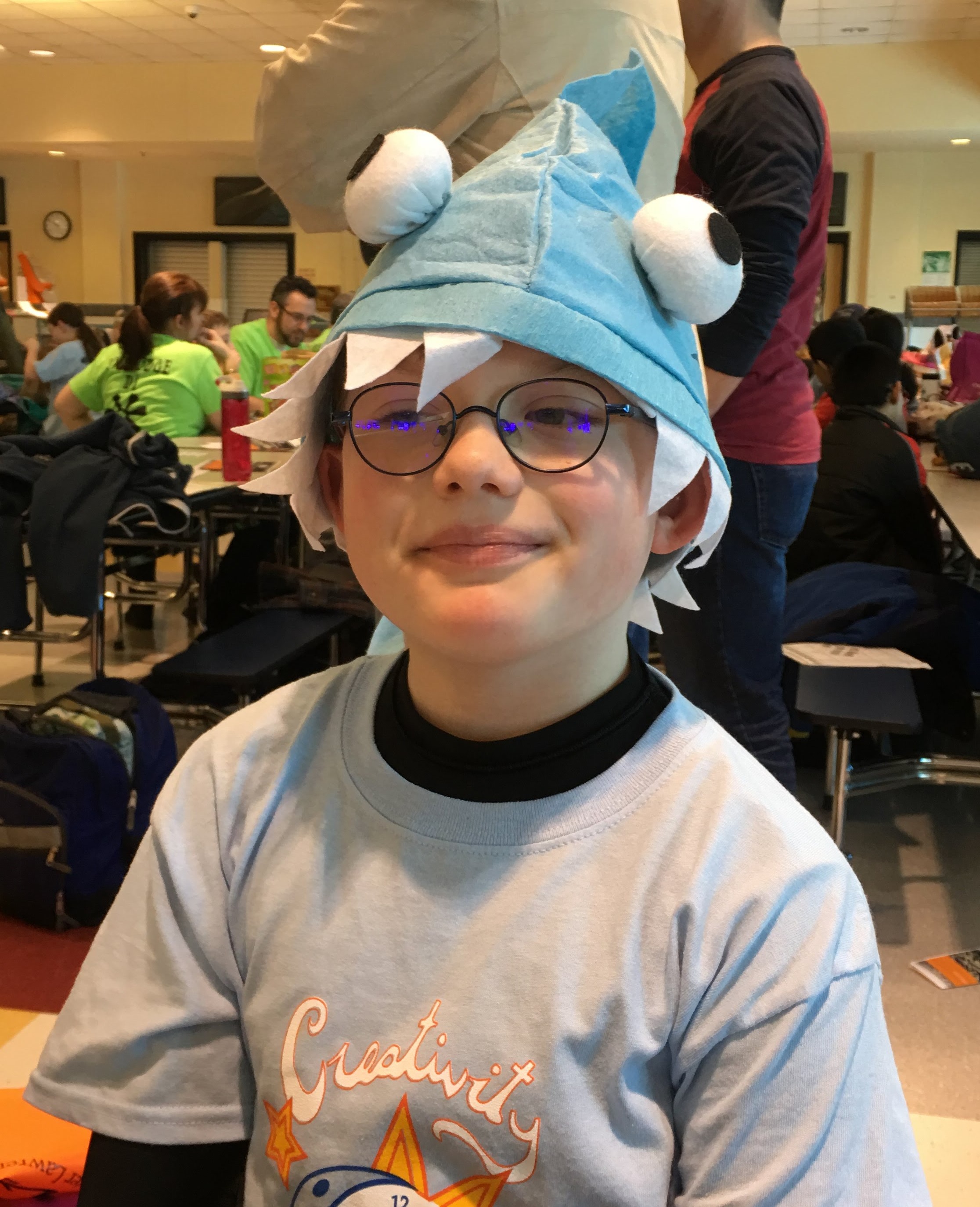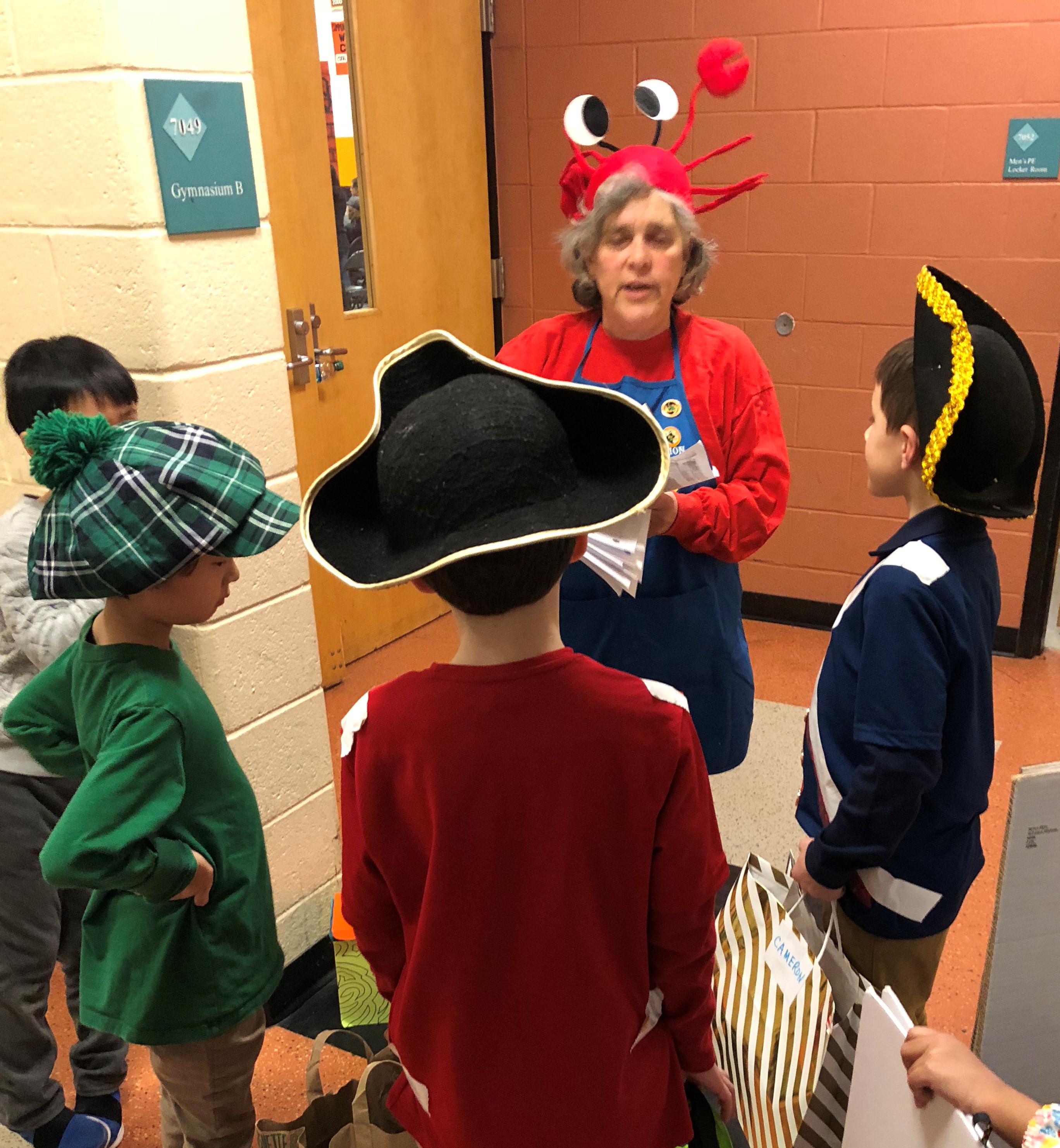FAQ for new parents
See also DI Jargon to become familiar with DI lingo!
What is DI?
Destination Imagination (DI) is a program in which children in grades 3 and up work in teams of up to 7 over the course of months to solve one of 6 different open-ended challenges in the following categories: Technical, Scientific, Fine Arts, Improv, Engineering, and Service Learning.
Children in kindergarten to 2nd grade, called Rising Stars, also work in teams to solve a special open-ended challenge designed specifically for young learners, usually with a science or social studies theme.
All the teams present their solution to their challenge at a local tournament in March.
Each year, 200,000 students worldwide participate in Destination Imagination. More than 2 million alumni from 48 U.S. states and 30 countries have participated in DI. Many of those same DI participants are now making the world a better place through various STEM and fine arts career fields. Famous alumni include:
- actor Zac Efron (High School Musical)
- author and actor Chris Colfer (Glee)
- Olympic gold medalist Maelle Ricker
- engineer Simon Dodd. Haven’t heard of him? Simon Dodd is an MIT graduate who holds 26 patents and volunteers as Team Manager for his son’s DI Team!
Get a better glimpse into the team challenge program in the video below (and catch a glimpse of a CMI team at 0:12)!
Why do DI?
Through solving a DI challenge, kids learn invaluable life skills as they navigate the creative process—a powerful learning tool that teaches them how to think, not what to think.
- Kids can express their creativity, learn simple building and construction, become comfortable working in teams, and learn how to speak in front of an audience.
- Students learn to focus, take risks, reflect on what they’ve learned, and grow from failure.
- Participants improve in collaboration, problem solving, project management, and creative and critical thinking.
- Students have fun and build friendships that can last a lifetime.
See other parents explain how they have seen their children grow after participating in DI.
Also, watch a 6th grade Challenge Me, Inc. team explain what they learned from 1 season of DI!
Who can participate?
Students in grades K-2 are called “Rising Stars” and have a special, simpler challenge designed especially for them that focuses on either a science or social studies topic. Teams of students in 3rd-12th grades select one of the 6 challenges in the following categories: Scientific, Technical, Engineering (formerly Structure), Fine Arts/Theater, Improvisational Theater, and Service Learning.
We also need parents to volunteer as Team Managers to ensure we can find teams for all of the children who want to participate! We provide support and training for our Team Managers. See the FAQ for new Team Managers to learn more!
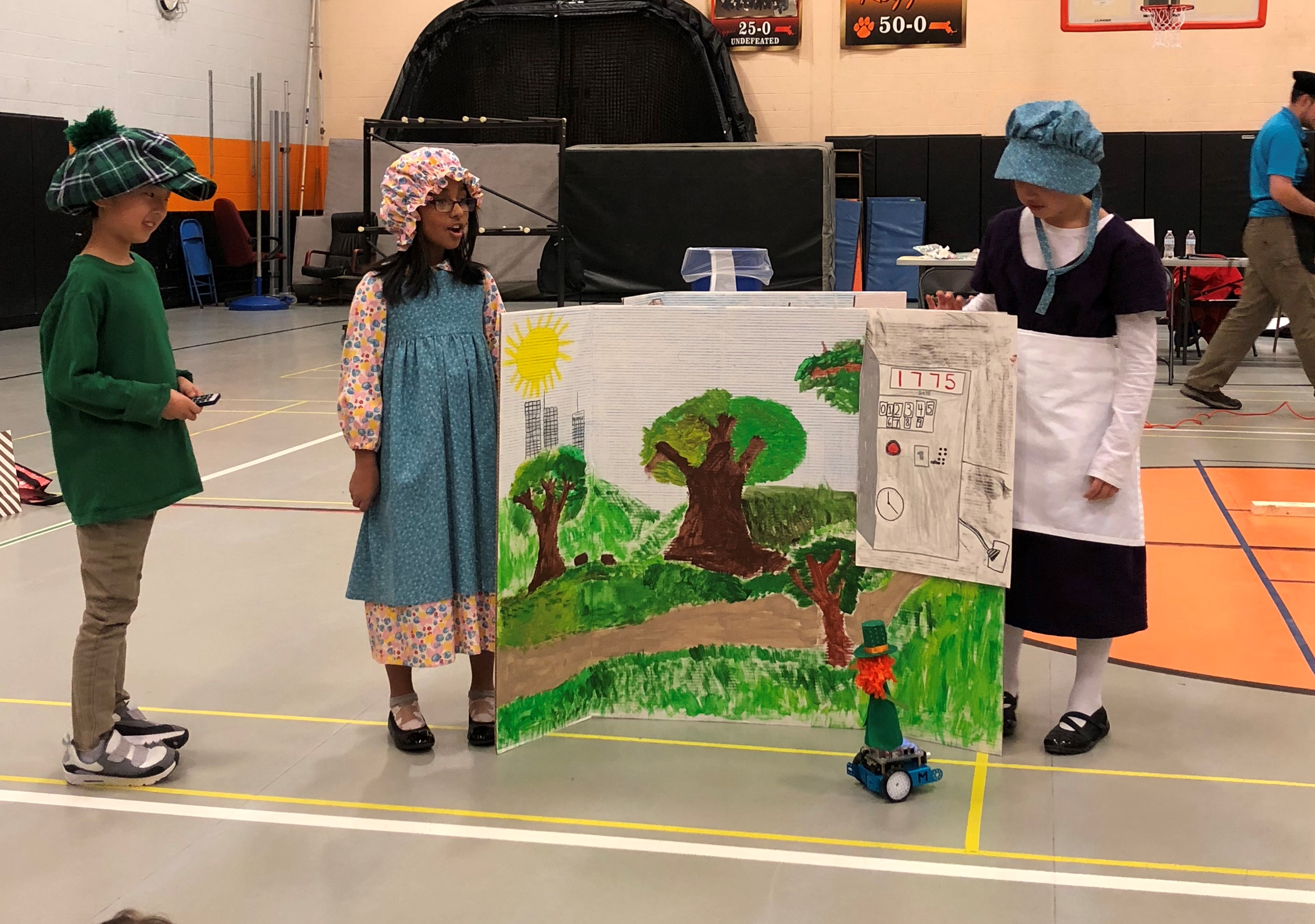
What exactly do the kids do?
In the beginning of the season, teams read and choose their challenge (except Rising Star teams, who only have one challenge option). Then the children brainstorm ideas for possible solutions and do research. Later, they invent their story line for their skit and plan the props, sets, costumes, technical devices, etc., that they need to build. Then they build, paint, design, write, sew, and CREATE. Teams also practice Instant Challenges (see below for more information).
One special requirement of DI is that children must solve their challenges without INTERFERENCE from adults, including parents or team managers!
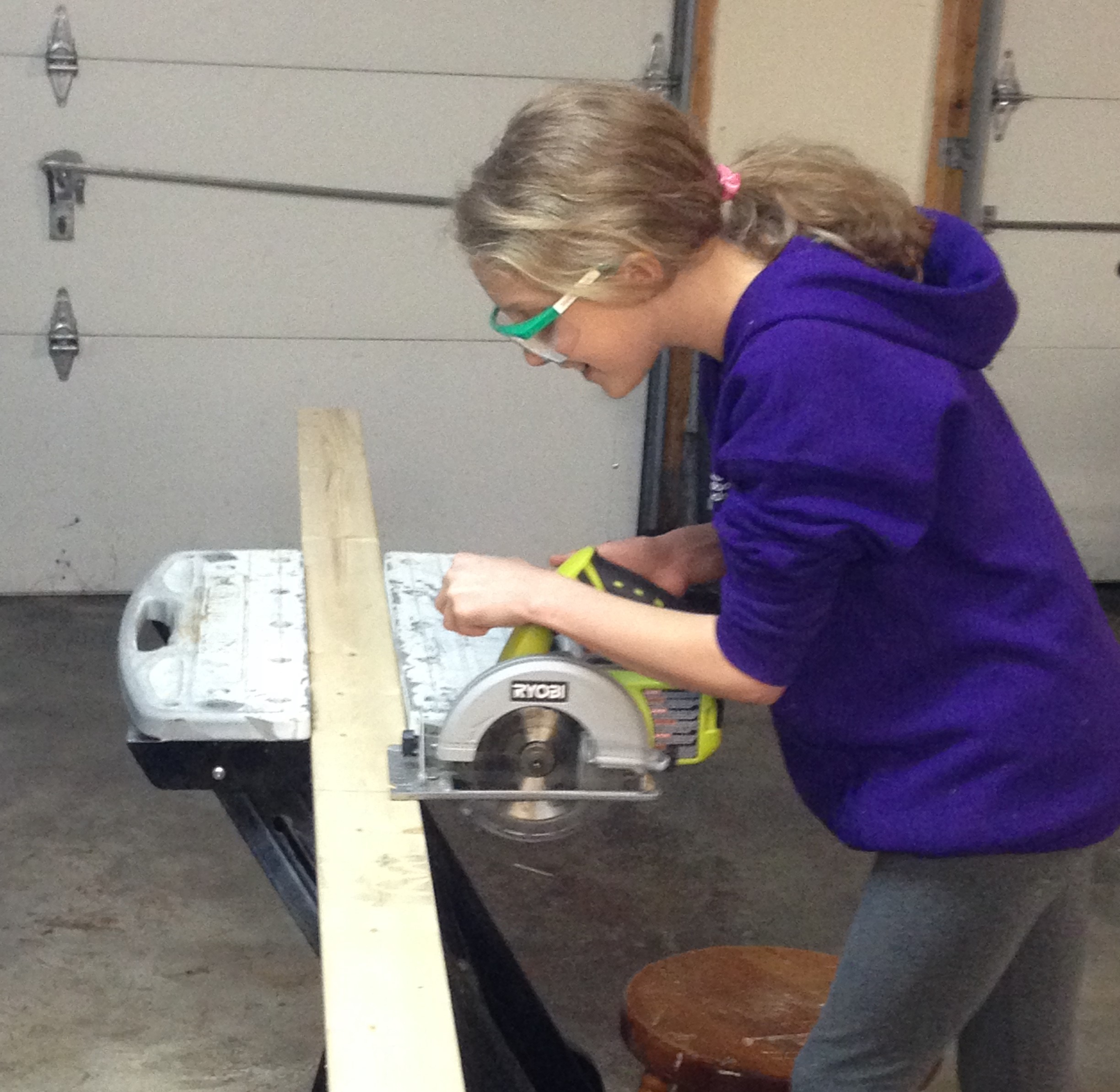
What is interference and how do I avoid it?
Adults may teach children any skills they need or to use equipment safely and properly, but they may not tell the children how to make something, design something for them, or do any work for them. Adults may take them to a museum to learn about something, or watch a documentary with them. Adults may do a workshop on a key concept they are learning about, but an adult may not say, “Use this information in your solution.”
However, safety is a priority. If children are doing research on the Internet, an adult may supervise and make sure the sites they visit are age appropriate. An adult may also insist on goggles and other safety equipment. If children need to cut with scissors or box cutters or power tools, an adult may show them how to do that. However, an adult may not make the cuts for them. If the children are not old enough to use the tools safely, then they need to think of another solution.
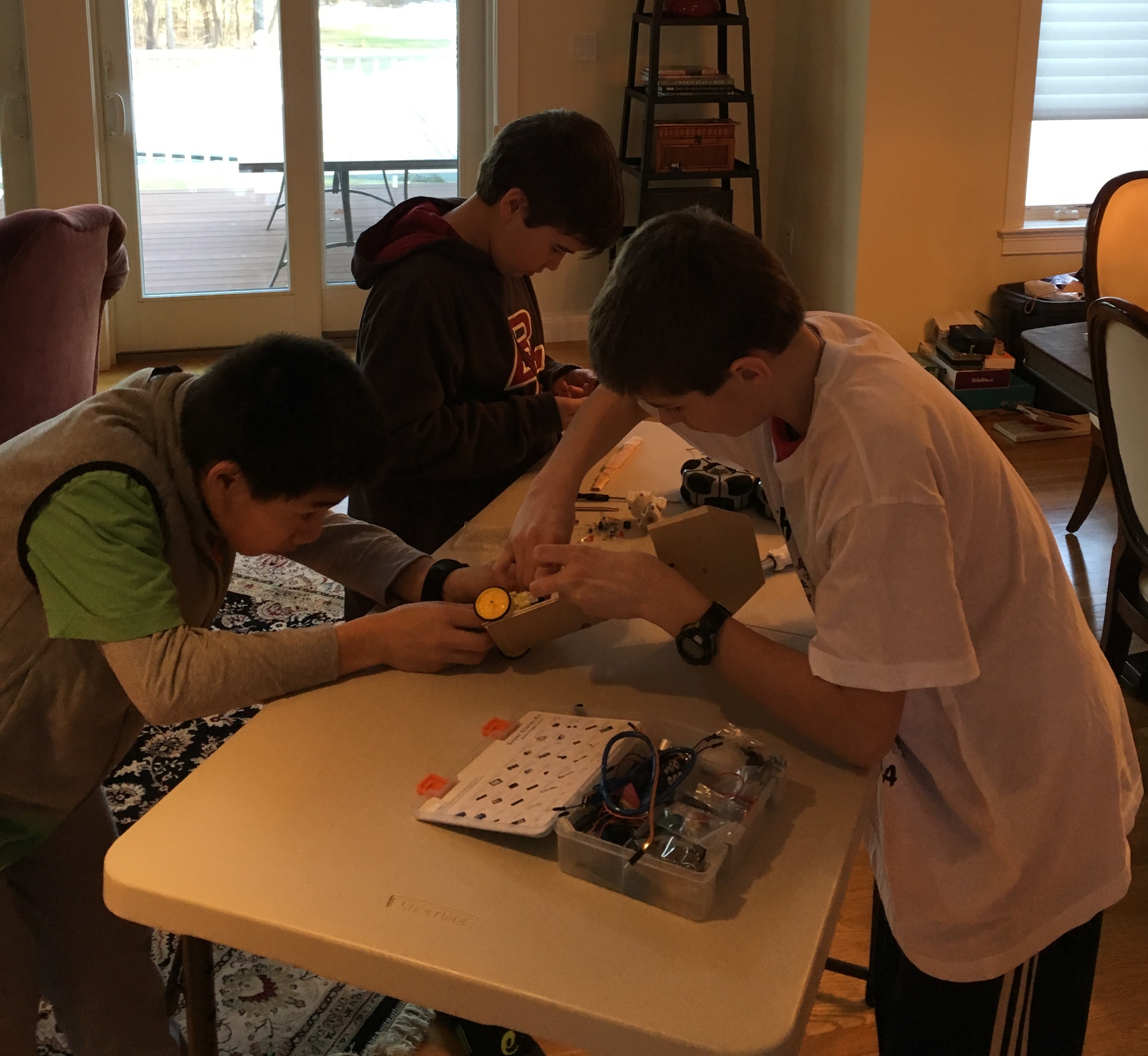
What is an Instant Challenge?
Teams usually practice ICs at their meetings. At the Tournament, a team must solve an IC that they have never seen before.
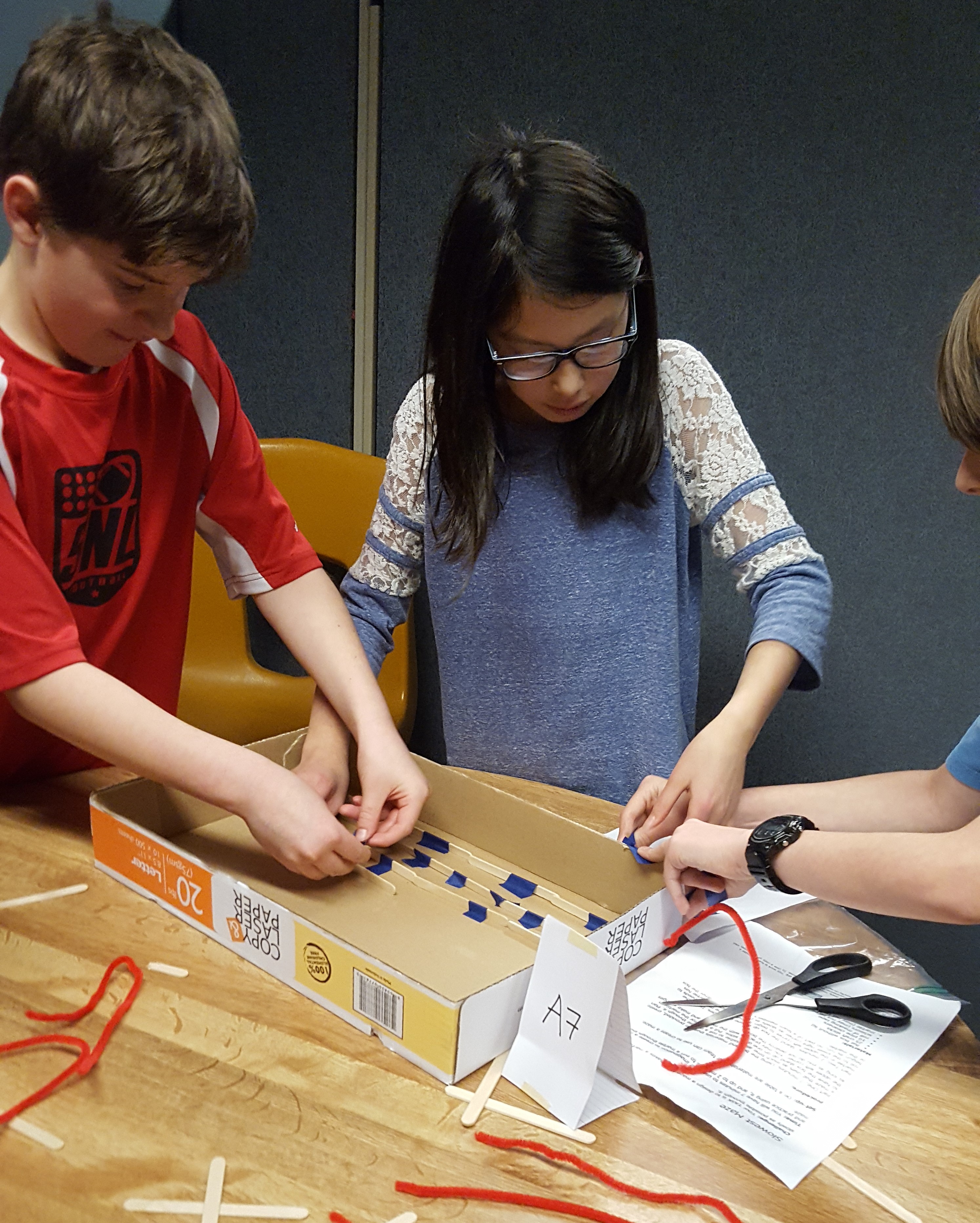
What is the season?
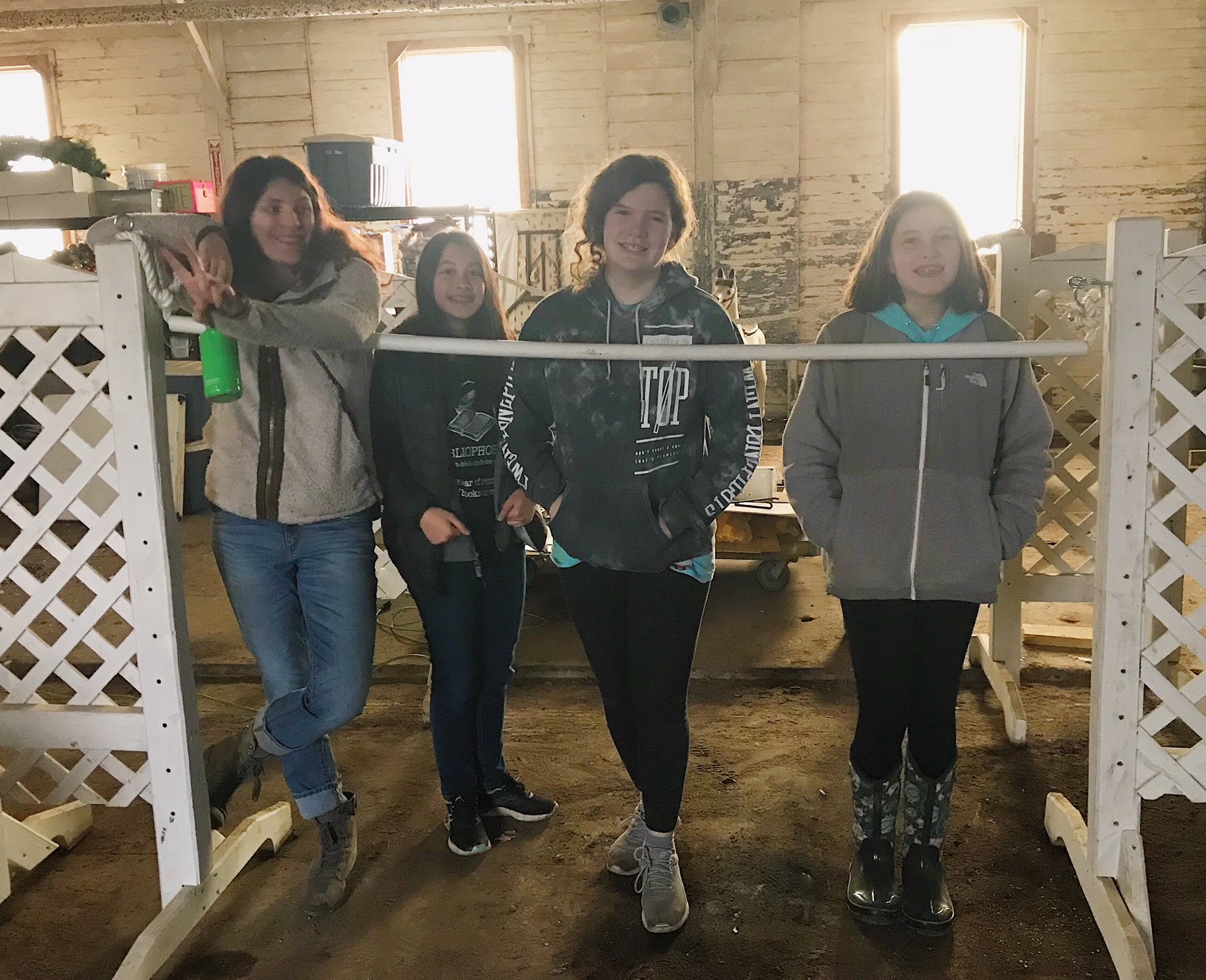
Is it a competition?
While DI is a competition for children in grades 3-12, the purpose of participating is not about the competition, but about the journey and process of having teams independently work hard to create a solution they are very proud of.
All teams present their solutions to a group of Appraisers at the Regional Tournament in March. Winners progress to the State Tournament held at Worcester Polytechnic Institute in late March or early April. First, second, and third place winners at the State Tournament advance to Global Finals, the international level of competition, which is held the week prior to Memorial Day weekend. Global Finals has been at the University of Tennessee-Knoxville for many years, but will be held in Kansas City, MO in 2019 and 2020.
For our Rising Stars (grades K-2), the Regional Tournament is a showcase where they present their solution to a team of appraisers who praise their work and provide written comments.
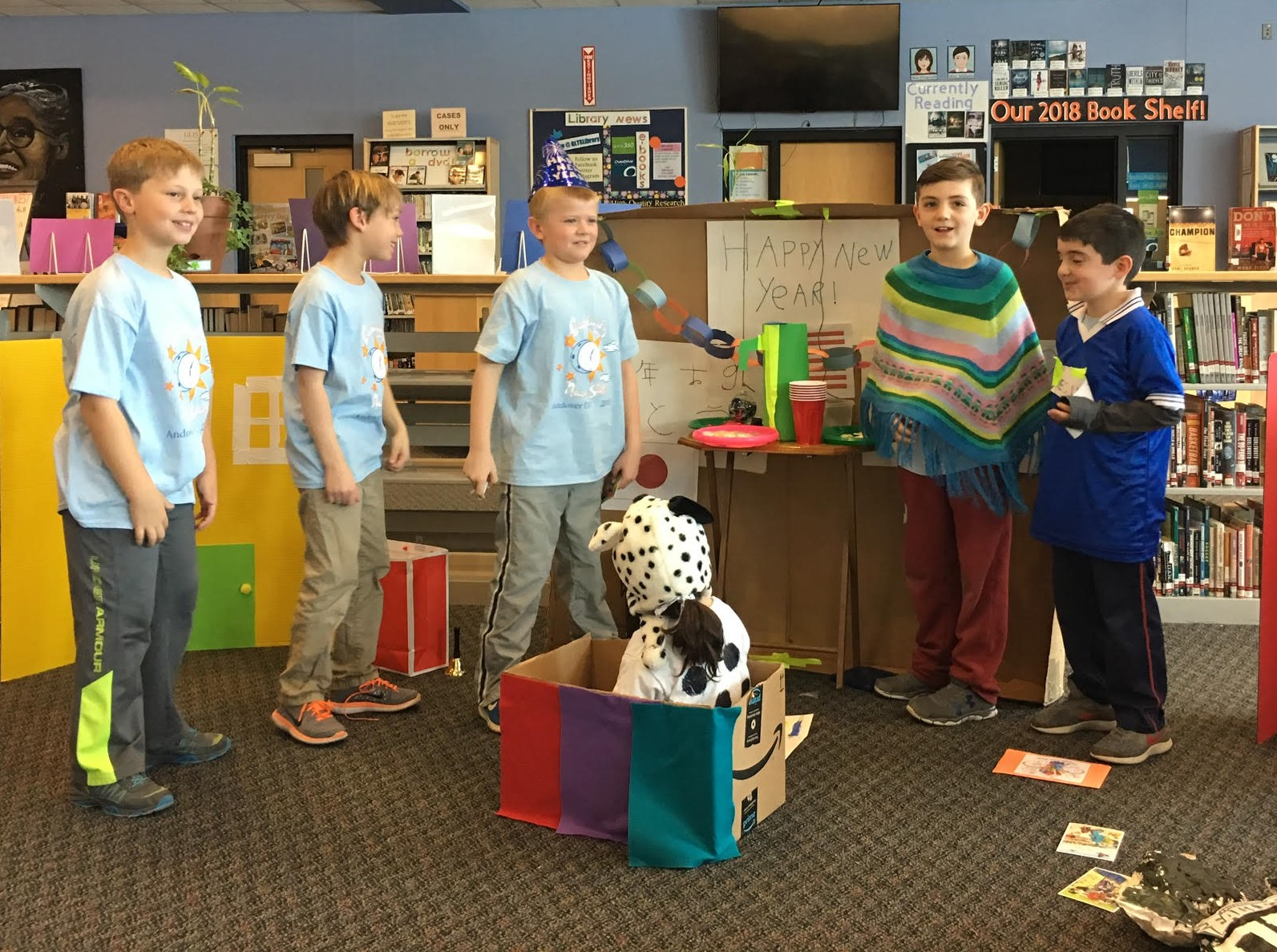
What is the time commitment?
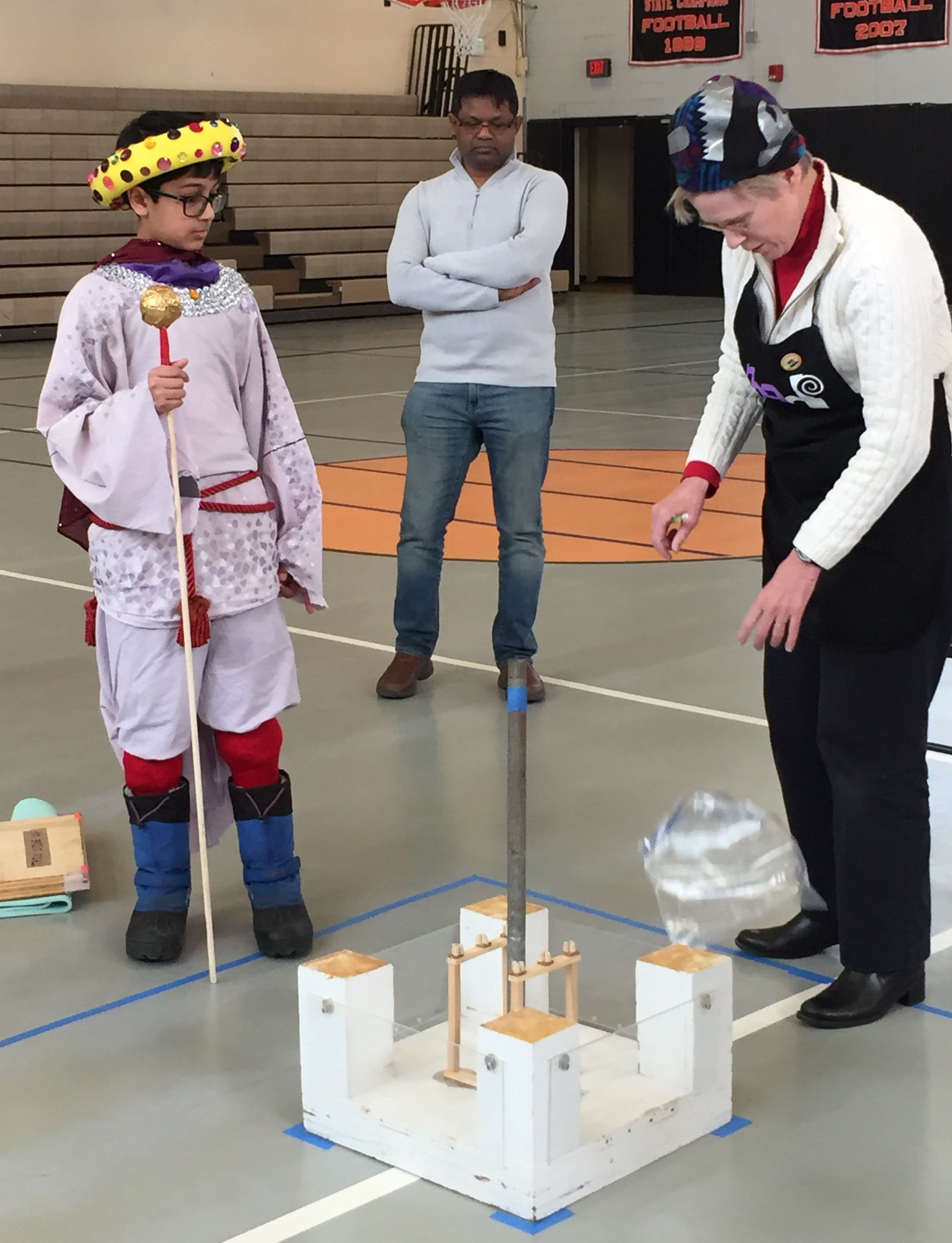
How are teams formed?
Challenge Me, Inc. has a Parent Information and Team Formation Meeting every year in late September or early October. We give a presentation about DI to new parents and then start the team formation process for those who are ready to jump in. The date of the meeting will be posted on our website, on our Facebook page, on Andover Mums on Facebook, in the Andover Townsman, and through emails from many of the town’s schools and PTOs/PACs.
Teams are formed in one of the 4 age groups:
- Rising Stars: grades K-2
- Elementary Level: Grades 3-5
- Middle Level: Grades 6-8
- Secondary Level: Grades 9-12.
Children from different age groups may be on the same team, but the team must compete at the level of the oldest child on the team. A team of 2nd, 3rd, and 4th graders is an Elementary Level team. A team with one 6th grader and the rest 4th and 5th graders is a Middle Level team.
Some teams form themselves. If you have 4 or more children, let us know. One or two of the parents will need to manage the team, but we’ll show you how!
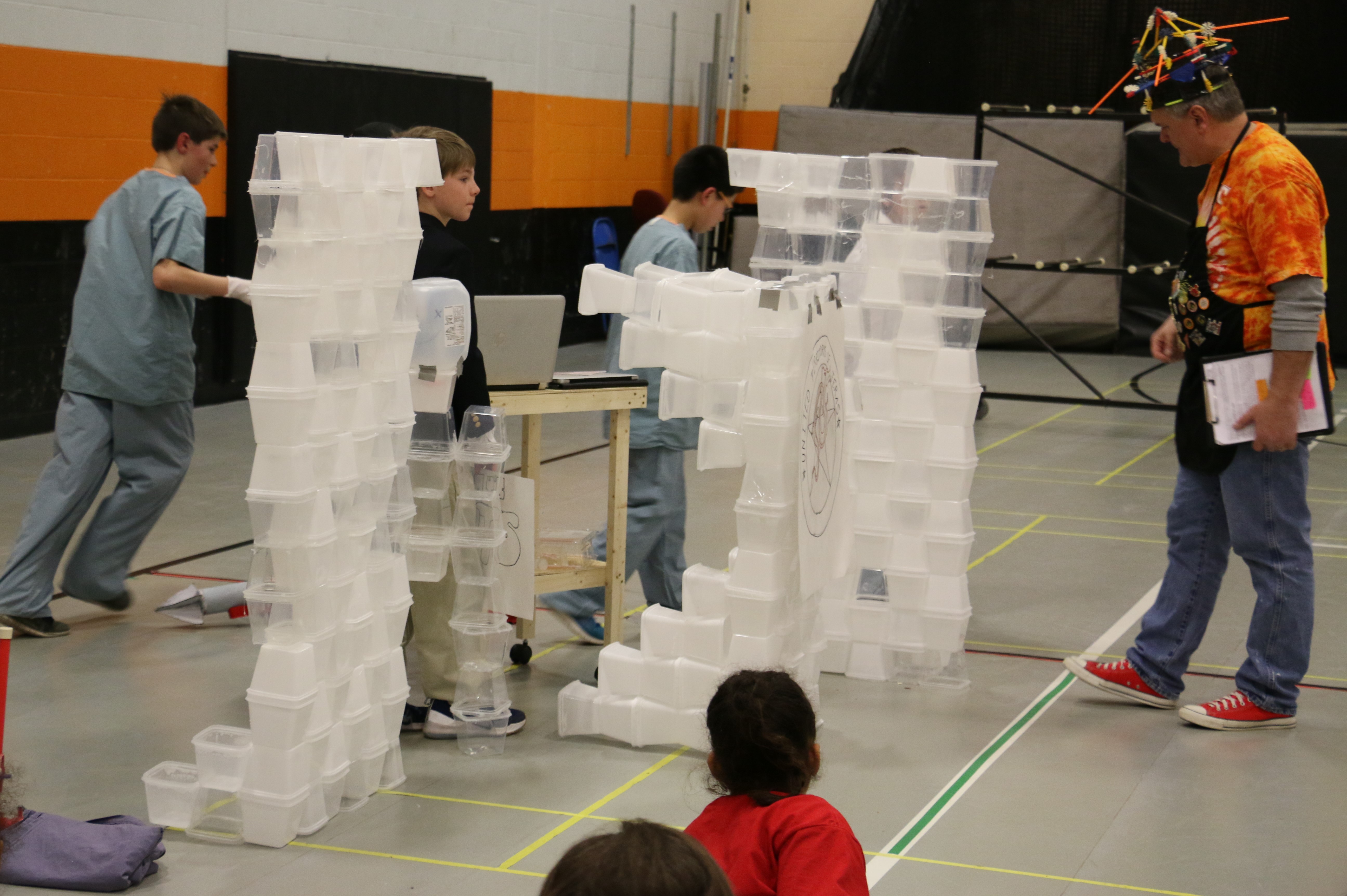
When do teams meet?
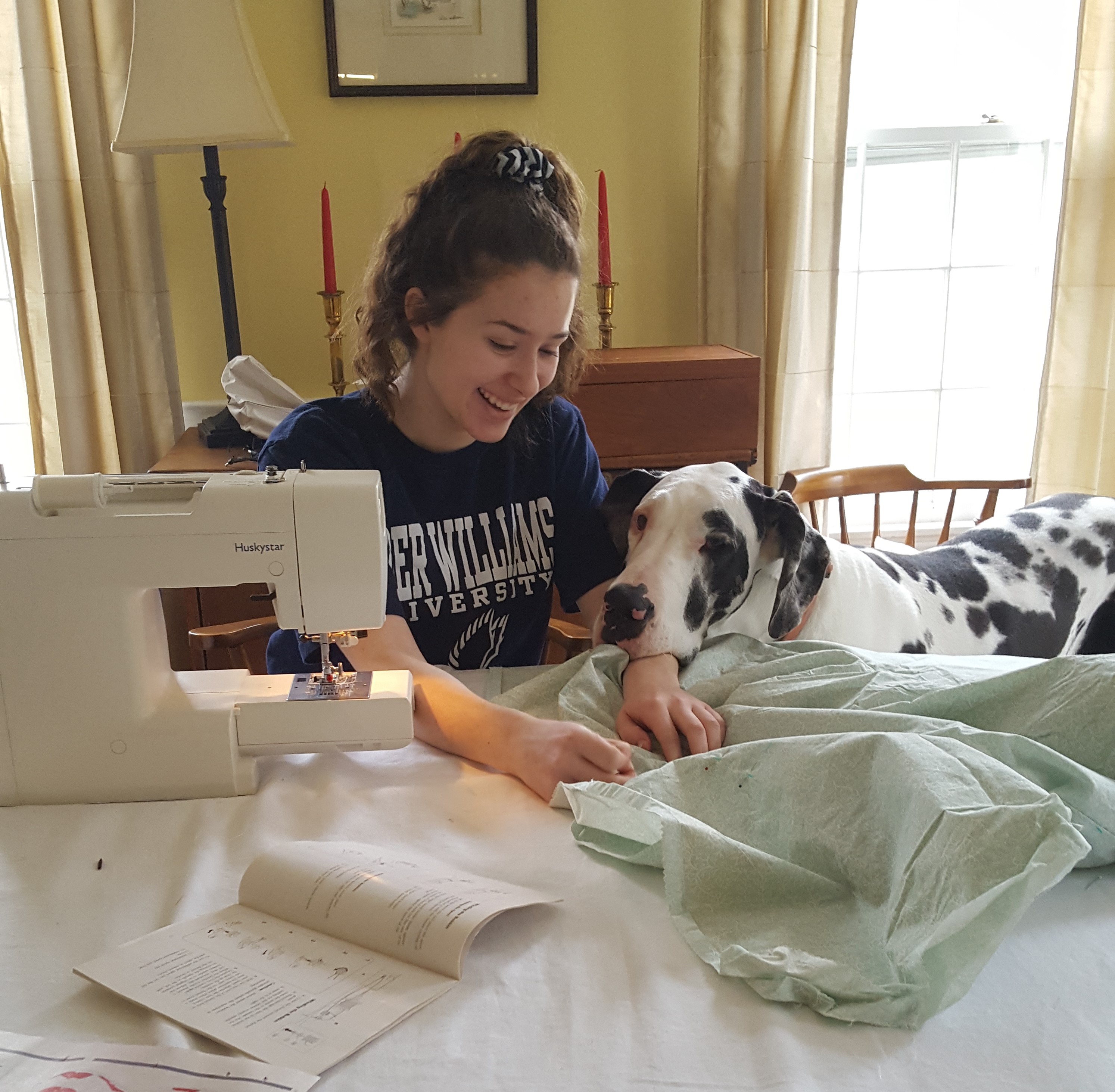
Where do the teams meet?
Once the team starts building props and scenery, which can be large, most teams find it most convenient to meet at the same place every week so they are not transporting materials and their projects from place to place. If you have a basement or other space where your team can work, then that may be where your team will meet.
A few middle school teams are coached by teachers and meet at school.
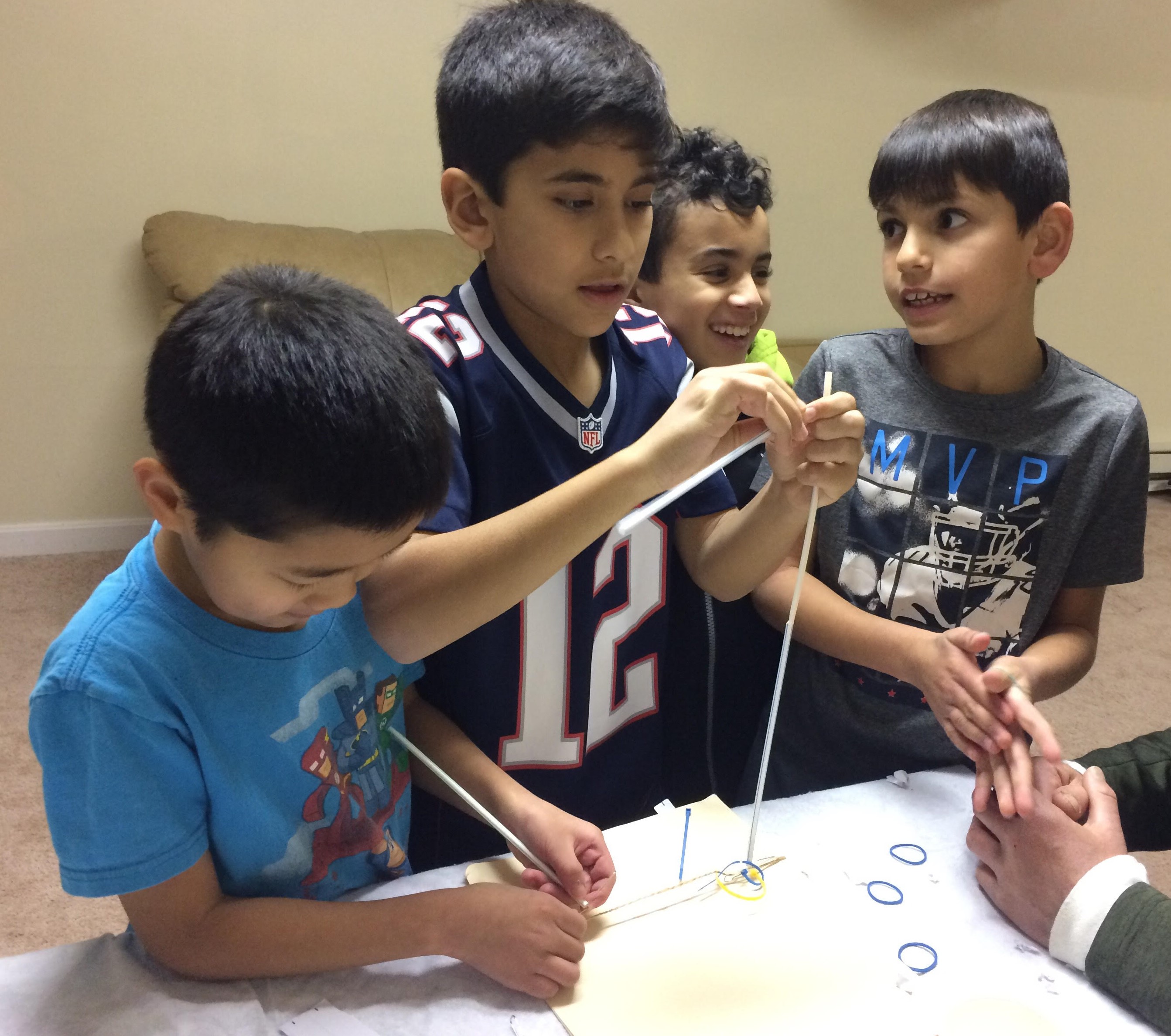
What is the cost?
There are two fees to participate in DI. CMI charges a $145 registration fee per child. This fee includes:
- Organizational, state, and national team registration fees
- A town T-shirt for the child that is worn at the regional tournament
- Training programs and workshops for both the child DI participants and their managers
There is an additional materials fee that is used to purchase the supplies the team will use to solve their challenge. This fee is determined by and collected by the Team Manager. The amount of the materials fee varies and depends on the challenge chosen by the team, the age of the children, the number of the children on the team, and the supplies that the children need for their particular solution. In general, the materials fee ranges from $20-$80/child. Many managers request a certain amount at the beginning of the season, and then may ask for an additional materials fee later in the season if the children use all the supplies in the course of working on their challenge.
Some teams go on field trips to museums or shows to learn about a topic. Those costs are paid by parents.
There are additional fees if your child’s team advances to the State Tournament from the Regional Tournament, or to Global Finals from the State Tournament.
Financial assistance is available for children who would otherwise be unable to participate in DI due to financial need. Please see the scholarship application for more information and to apply.
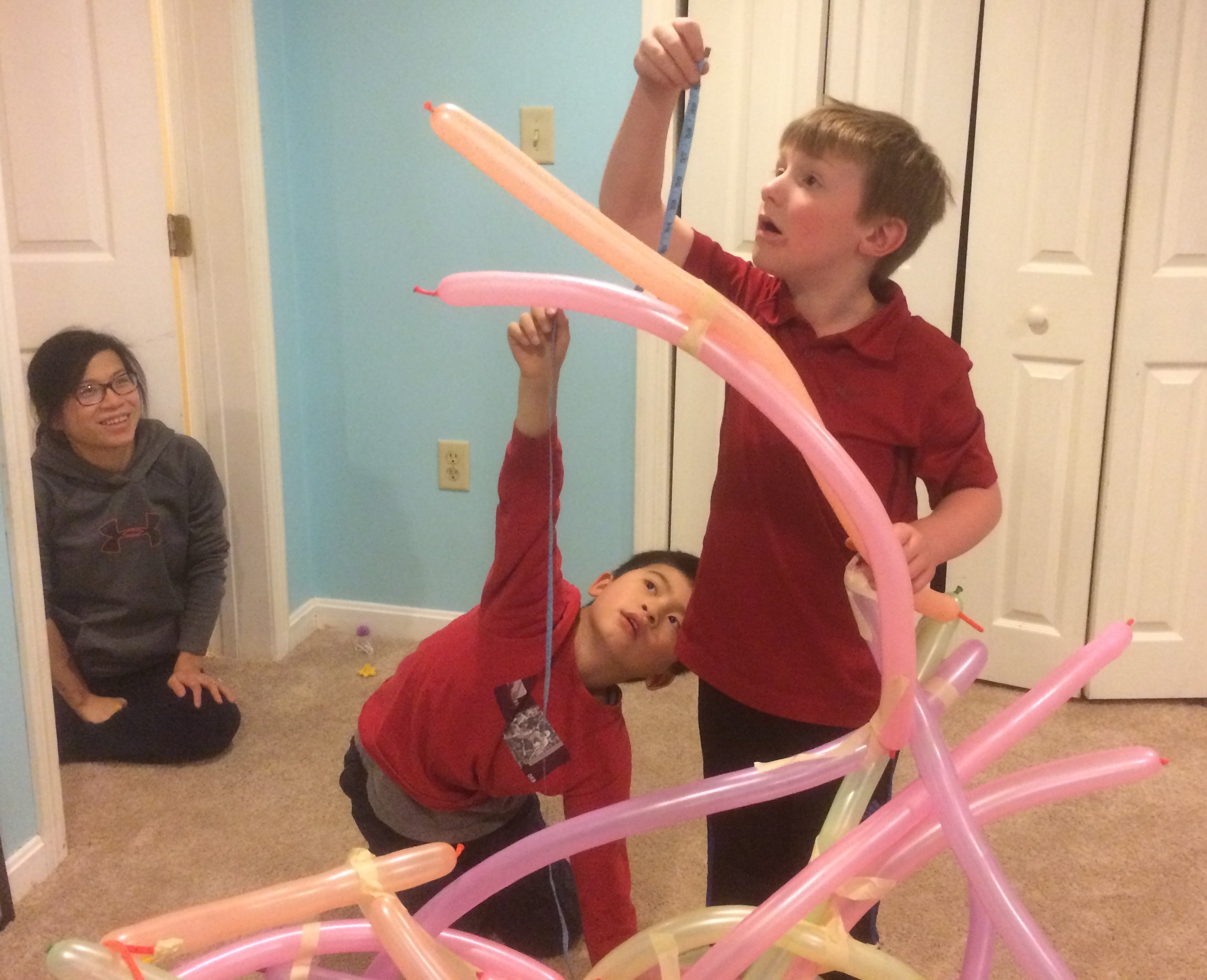
Who are team managers and what do they do?
Team Managers plan the meetings, help the children read and understand the challenges, provide Instant Challenges and supervise all work times. Challenge Me Inc., will explain the details (please see FAQ for new Team Managers for more information) and provide training and support. Team Managers also attend trainings, learn about DI, and communicate with CMI and with their participating families.
Many people are nervous about volunteering to be a Team Manager, but we would not have had 47 teams in 2015-2016 unless so many WERE willing to take that risk and reap the rewards! It is also a lot more fun to co-manage with another parent…pick two parents from the team and do it together!
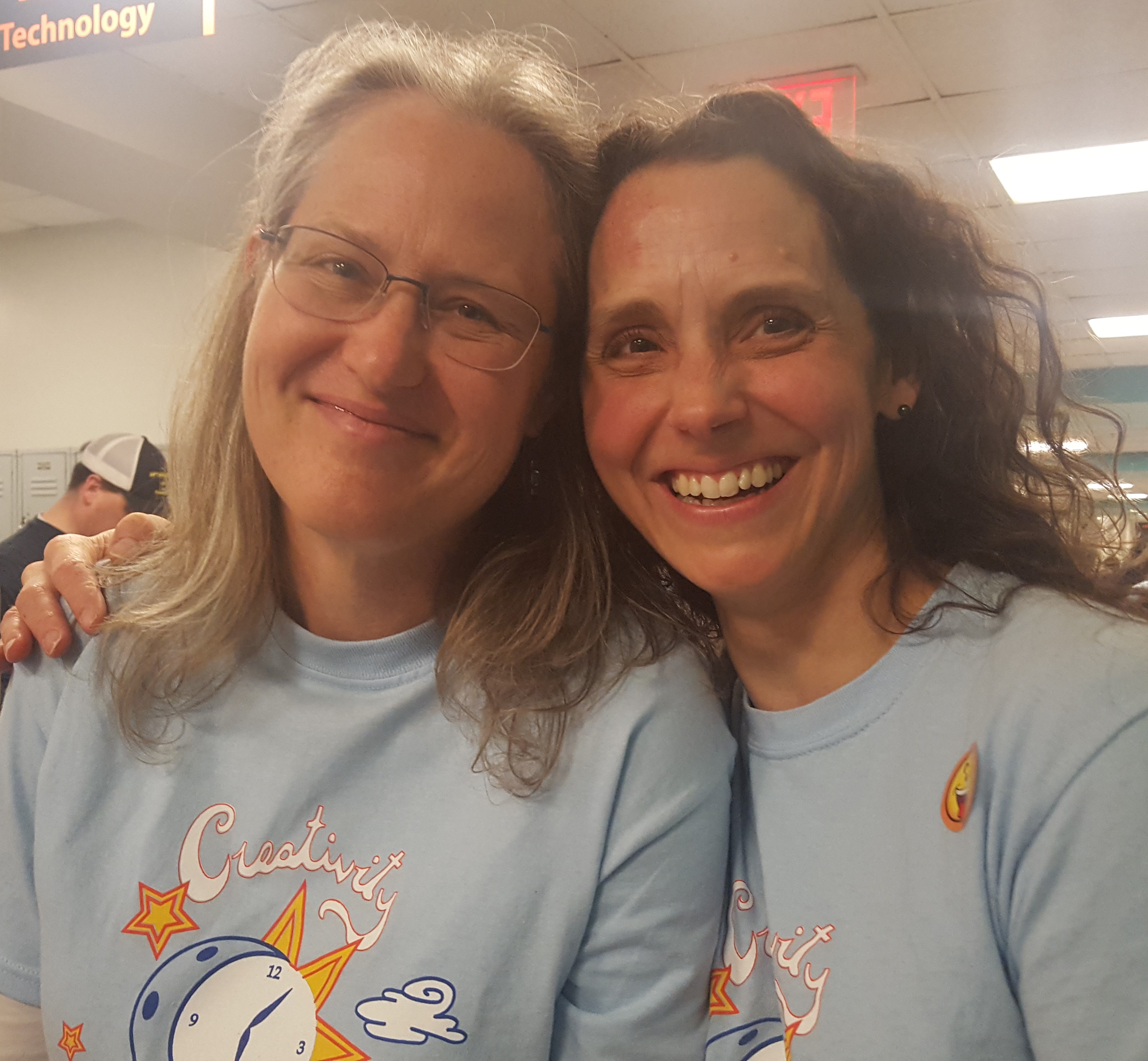
What can I do to help?
The best way to help is to volunteer to be a Team Manager! We usually have more children looking for teams than we have spaces on teams, due to a limited number of managers. Volunteering as a Team Manager allows more children to participate in Destination Imagination!
Another way to be involved with Destination Imagination, with a smaller time commitment than a Team Manager, is to serve as an appraiser (tournament official) for the Regional Tournament. Every team needs to provide an appraiser to compete in the tournament, and the appraiser is usually a parent of a team member. While many appraisers are judges who evaluate the team’s solutions, there are other roles for appraisers that you can read about here. Ready to sign up? Go to Appraiser Registration Instructions to learn how.
You can also provide materials and supplies for your child’s team, as directed by the Team Manager. You can also offer your home to host meetings or provide snacks for your child’s team. You can offer to teach the team a skill that they would like to learn.
You can also volunteer to help Challenge Me Inc. in many ways, including fundraising. Please contact us if you would like to volunteer!
